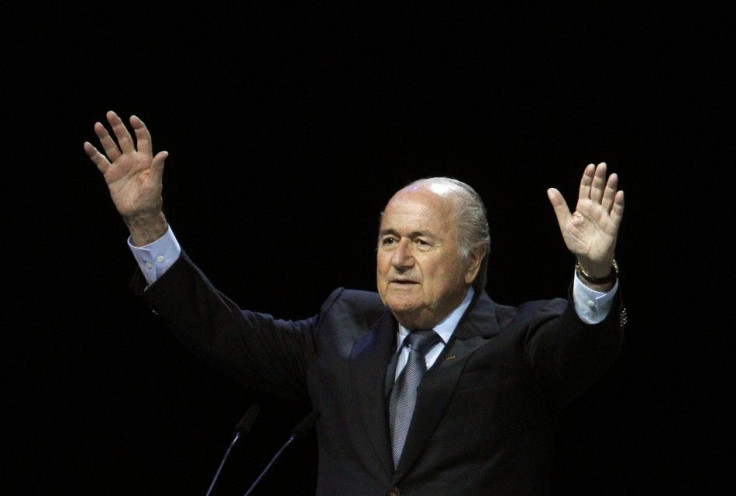Sepp Blatter's Comments Prove Just How Bad Racism in Soccer is

According to FIFA President Sepp Blatter, there is no racism in European soccer.
We are in a game, Blatter told CNN World Sport. And at the end of the game, we shake hands, and this can happen, because we have worked so hard against racism and discrimination.
Manchester United's Patrice Evra, a French international of African decent, probably wouldn't agree. Nor would Liverpool's Luis Suárez.
Suárez allegedly called Evra a racist slur during a recent match, and while both he and his club have maintained innocence, the remark has sent fans into a tizzy.
But Blatter may not see it as a big deal. The FIFA boss reiterated his statement in a separate interview on Al-Jazeera, saying: During a match you may say something to someone who [does not look] exactly like you, but at end of match it's forgotten.
Chelsea defender and captain John Terry also knows that things aren't always forgotten at the end of a match. Terry is going to be charged by police for calling Anton Ferdinand a f------ black c--- during a match in October.
Blatters comments have sparked understandable outrage. A number of Premiership players, coaches and former-players have called for his resignation.
Sepp Blatter your comments on racism are so condescending its almost laughable. If fans shout racist chants but shake our hands is that OK? Manchester United defender Rio Ferdinand tweeted.
Blatter has, of course, gone back on his statements.
I am sorry and I regret that my statements earlier this week have resulted in an unfortunate situation, he said. I am committed to the fight against racism, have no doubt about that. And I want to make it very clear: I will not stop until we have stamped racism out of football.
When you have done something which was not totally correct, I can only say I am sorry for all those people affected by my declarations. It hurts and I am still hurting because I couldn't envisage such a reaction.
Like Terry and allegedly like Suarez, Blatter didn't think before he spoke.
FIFA has put out anti-racism campaigns for most of the last decade. The theme of the 2010 World Cup in South Africa was fighting discrimination. Under Blatter, FIFA has created a new Code of Ethics, adding in section 58 which states: Anyone who offends the dignity of a person … through contemptuous, discriminatory or denigratory words or actions concerning race, colour, language, religion or origin shall be suspended for at least five matches. Furthermore, a stadium ban and a fine of at least 20,000 Swiss francs shall be imposed.
But that doesn't mean that racism in the game or even in fans has changed much in the past 10 years.
I do think, especially being around the England team and being around the [English Football Association] – the FA do a lot of work in kicking racism out of the game. They've have made huge strides in the past 10-15 years – but it is still there, said David Beckham on Friday.
The current controversy has stayed mostly in England. I spent the last year in London, where I sadly could only afford to go to a few football matches. British soccer fans live up to their reputation. In the games I attended, some fans had more fun shouting invectives at players than they did watching the game.
However, in London, I didn't hear any racist remarks from the stands. Maybe that's because I only saw matches in London, arguably the most diverse city in the world, and the suburb of Tottenham, where a sizable percentage of the population is black. But still, racism in English football is supposedly widespread among both footballers and fans, and reported instances are increasing (as noted by The Guardian's outstanding info-graph).
I also lived in Italy in 2007, the same year that the professional league was suspended because a fan was killed during a riot in Catania. That year, Siena, the small Tuscan city where I was living, was in Serie A, the country's top league. This was a rare occurrence and meant that I could see the world's best team and players from Siena's tiny stadium right in the city center.
Even in the small, cosmopolitan city, racism was apparent. However, it wasn't especially vicious. Remarks about skin color were shouted along with remarks about skill, speed and weight (that year the Brazilian Ronaldo was particular rotund) all with the same intonation and intent.
And that's the problem. For fans all over the world, racism is just another part of the game. It's Blatter's job to change that. It's going to be hard, but it needs to be done.
© Copyright IBTimes 2025. All rights reserved.





















